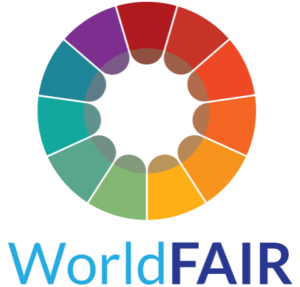 April 22 @ 1:00 pm – 2:00 pm (UTC)
April 22 @ 1:00 pm – 2:00 pm (UTC)
Register here
Speakers:
- Evan Bolton: Protocol Services: Standardized programmatic access to chemical information
- Stuart Chalk: Training Cookbook: Digital recipes for managing chemical data
- Iseult Lynch: The Case Study on Nanomaterials
More about the Case Studies
Chemistry
The WP3 (FAIR Chemistry) aims to align chemistry data standards with the FAIR data principles through:
- Development of guidelines, tools and validation services that enable scientists to share and store data in a FAIR manner;
- Addressing gaps in standards that currently restrain chemistry in both academic and industrial areas, in particular taking advantage of developments in AI/ML;
- Engaging critical stakeholders in the adoption of standards and best practices to significantly increase the amount of chemical data available for all scientific disciplines.
Chemical substances touch on all areas of laboratory science and chemistry underlies many critical worldwide issues, including climate, health, food availability and sustainable development. Increased reporting of machine-readable chemical data will support active research in chemistry and related sciences worldwide, and will be essential to the development of the interdisciplinary science critical to address the UN Sustainable Development Goals and UNESCO’s priorities around Open Science. IUPAC is the world authority on chemical nomenclature, terminology, and standardized methods of measurement, and is engaging in a concerted effort through collaboration with the broader chemistry and data science communities to translate a range of assets and activities into the digital domain. Aligning standards development and implementation with the FAIR data principles will facilitate development of guidelines, tools and validation services that support scientists to share and store data in a FAIR manner and support the ability to compile and interpret data across scientific disciplines.
The WP3 (FAIR Chemistry) aims to align chemistry data standards with the FAIR data principles through:
- Development of guidelines, tools and validation services that enable scientists to share and store data in a FAIR manner;
- Addressing gaps in standards that currently restrain chemistry in both academic and industrial areas, in particular taking advantage of developments in AI/ML;
- Engaging critical stakeholders in the adoption of standards and best practices to significantly increase the amount of chemical data available for all scientific disciplines.
Chemical substances touch on all areas of laboratory science and chemistry underlies many critical worldwide issues, including climate, health, food availability and sustainable development. Increased reporting of machine-readable chemical data will support active research in chemistry and related sciences worldwide, and will be essential to the development of the interdisciplinary science critical to address the UN Sustainable Development Goals and UNESCO’s priorities around Open Science. IUPAC is the world authority on chemical nomenclature, terminology, and standardized methods of measurement, and is engaging in a concerted effort through collaboration with the broader chemistry and data science communities to translate a range of assets and activities into the digital domain. Aligning standards development and implementation with the FAIR data principles will facilitate development of guidelines, tools and validation services that support scientists to share and store data in a FAIR manner and support the ability to compile and interpret data across scientific disciplines.
Nanomaterials
The mapping of existing initiatives to increase the FAIRness of both nanomaterials and mixture toxicity datasets and computational approaches for toxicity and mixture assessment is a critical step towards identifying both the domain- specific features and the general features needed to maximise data and model FAIRness.
Building on this mapping, and the development of a FIP, the case study will foster development and piloting of interoperability standards and guidelines for increasing FAIRness in the interlinked scientific disciplines (chemical toxicity, nanomaterials toxicity and characterisation, risk assessment, advanced materials, environmental science), and across the different domains.
This case study will enable the further adoption of the FAIR principles by the international nanomaterial community and encourage greater alignment with neighbouring disciplines and communities.
It builds on the partners’ successful collaboration in NanoCommons (a research infrastructure for nanoinformatics and FAIR nanomaterials data) and their leadership of the IUPAC InChI Trust efforts to develop a standard extension of the InChI for nanomaterials.
It will test the pilot operationalisation of the FAIR principles; run conference sessions and workshops with stakeholders (including the InChI-for-nano domain experts, and international ‘nano’ database managers and their users) to apply, refine, implement, improve the metrics for FAIR nanosafety datasets; and develop an inventory of FAIR nanoinformatics models and their domains of applicability, underpinning datasets and APIs to support interoperability, including guidelines to further improve the interoperability of nanoinformatics models.
The results will include complete human- and machine-readable nanomaterials data provenance trails that can be implemented in a straightforward way using the distributed FAIRification approach.
